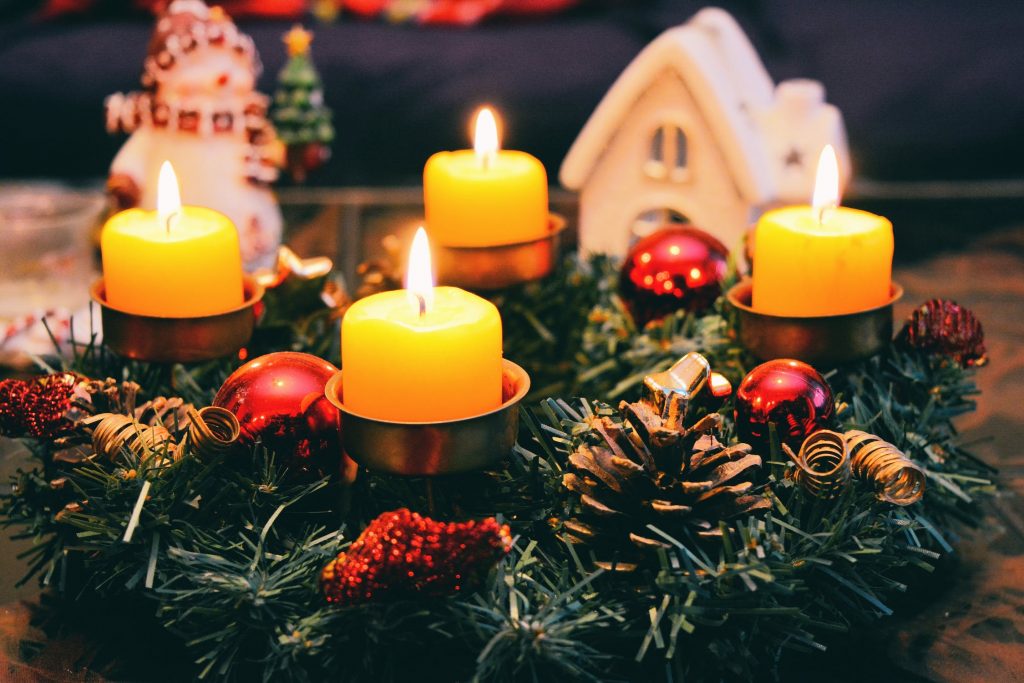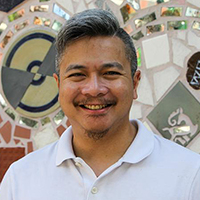By Hendy Matahelemual
Growing up in a Christian family in Indonesia, a Muslim-majority country, I didn’t often see Christmas decorations. But we always knew where we could find a Christmas display. It was at a car dealership in a corner of the city. The owner must have been Christian.
Every year at the end of November, my family and I were excited to find out what kind of Christmas exhibit the owner would put up: Santa and his sleigh, a snowman, a nativity scene. Each year was different.
He also put up colorful lights, so at night it was wonderful to see — sacred and secular Christmas decorations, including symbols of cold weather and snow, in a tropical climate.
As the years passed, the car dealership moved and there were no more Christmas exhibits on that corner. But the colorful lights and snowmen will stand forever in my Christmas childhood memories.

Not quite satisfied with a mental picture from memory, I opened up Google Maps to see what that corner of Bandung looks like right now. As I scrolled the surroundings, something came up. I realized that right across the street stands one of the city’s Great Mosques.
As a child, I never noticed the mosque. It did not matter to me. But now it does.
As followers of Jesus, we need to change our attitude toward people with different beliefs.
In his ministry, Jesus interacted with people of diverse backgrounds: Romans who believed in multiple gods, Canaanites who worshiped Baal, Samaritans who worshiped Yahweh at Mount Gerizim rather than at the Temple in Jerusalem.
Jesus didn’t try to convince people to join his religion. He healed the sick, delivered the demonically oppressed, told people to tell others what God had done for them, praised people for their faith, and announced they would feast in heaven with the prophets.
Jesus simply loved them, praised the good in them and answered the questions they were asking — sometimes by pointing them toward finding the answers for themselves.

Mesach Krisetya, an Indonesian Mennonite leader who died earlier this year, said Christian missionaries in Indonesia often posed a conquering strategy. It is common for Christians to feel threatened by Islam and for Muslims to feel offended by former colonial powers, politics, and cultural arrogance. Krisetya urged pluralist sensitivity, aware that neither Muslims nor Christians lose identity through a careful exchange.
Recently we invited a Jewish rabbi to speak at our Mosaic staff meeting. Her congregation is just two blocks around the corner from my congregation in South Philadelphia.
We invited her to share her knowledge of chesed, a Hebrew word meaning God’s steadfast love, in light of our fall Assembly. As she explained the love of God and the practice of chesed, I was amazed by her insights on the Old Testament. She invited us to their Shabbat dinner, which I’m very interested to experience.
During Advent this year, I will try to be aware of my surroundings. I will try to find God in other people and in every corner of my life. I will try to love even when it hurts. I will try to extend grace to everyone, regardless of their actions, beliefs, status, politics or nationality.
“Praise the Lord, all you nations! Extol him, all you peoples! For great is his steadfast love (chesed) toward us, and the faithfulness of the Lord endures forever. Praise the Lord! (Psalm 117).
I believe one thing unites us as humans: God’s constant, steadfast, faithful love.
Let us show the world that we are Jesus’ followers, not by how many Christmas decorations we put up, but by how much we love strangers as well as friends.
Editor’s note: This article originally appeared in Anabaptist World on Nov. 18 and is used here by permission. To read the original article, please click here.

Hendy Matahelemual
Hendy Matahelemual is the Associate Minister for Community Engagement for Mosaic Conference. Hendy Matahelemual was born and grew up in the city of Bandung, Indonesia. Hendy lives in Philadelphia with his wife Marina and their three boys, Judah, Levi and Asher.
The opinions expressed in articles posted on Mosaic’s website are those of the author and may not reflect the official policy of Mosaic Conference. Mosaic is a large conference, crossing ethnicities, geographies, generations, theologies, and politics. Each person can only speak for themselves; no one can represent “the conference.” May God give us the grace to hear what the Spirit is speaking to us through people with whom we disagree and the humility and courage to love one another even when those disagreements can’t be bridged.
This post is also available in: Indonesia (Indonesian)
This post is also available in: Indonesia (Indonesian)
